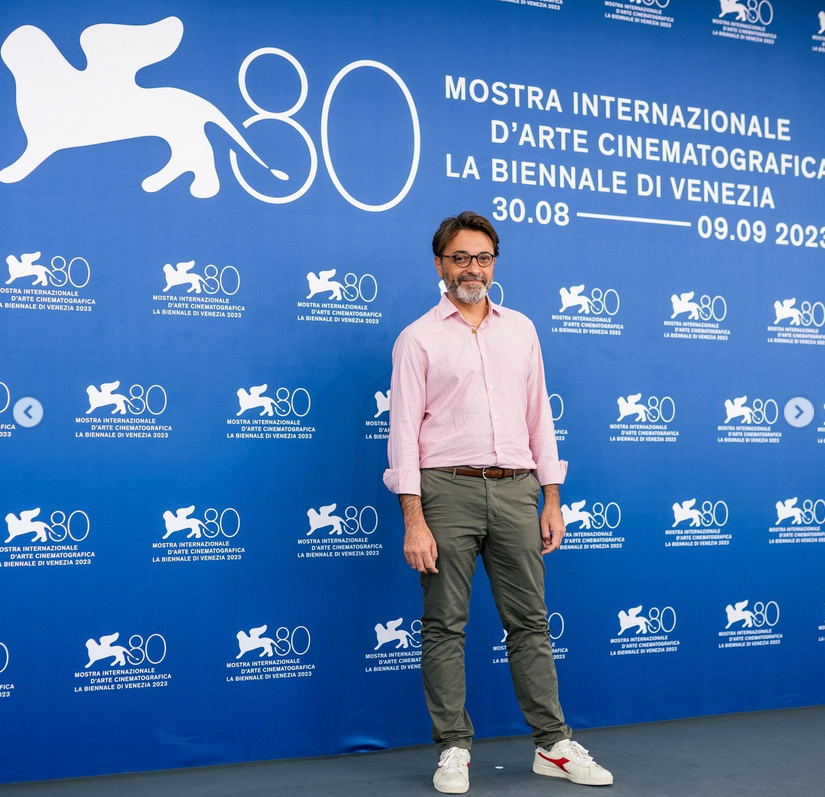Behind the Mountains (Oura el jbel) by Tunisian director Mohamed Ben Attia is part of the Orizzonti section of the Venice Film Festival in its 80th edition.
Ben Attia’s film follows the story of Rafik, who after spending four years in jail takes his son behind the mountains and shows him an exceptional discovery.
We spoke to the Berlinale Silver Bear award winner about the inspiration behind his latest project.
AM: Mohamed, how did you prepare yourself creatively for the film?
I attach great importance to the preparation. I try to involve the actors as much as possible well before the shooting, multiple script readings and considering several options to finally be ready for filming. This allows me not only to be less stressed, but also to take the time to improvise by thinking about other ways of doing things on set.
AM: What are some of the main challenges you faced during filming?
This time we had to manage new parameters. One of them was the special effects. We wanted them to be done as naturally as possible on the set, and as it was hills and mountain peaks, this step was painful for everyone.
AM: Would you say that Rafik reflects the new generation of Middle Easterners?
It’s difficult to make this kind of generalization. What I can say is what Rafik feels can be experienced by many men and women, only Rafik expresses it in an extreme and instinctive way. After the screening of the film, several spectators confessed their rage on a daily basis, that they are often very close to exploding and throwing everything away. But of course, it’s still controllable, and although we often feel like strangers to our lives, we are very quickly caught up with our modern lives to preserve them despite everything. Like Najwa in the film, we do anything to protect this fake comfort.
AM: How important is it to also highlight the struggles of men in our Arab society?
I believe that it’s more than the struggle of the Arab man, it’s the malaise of a modern man. Our societies tend more and more to merge with Western societies. What I noticed around me is a permanent questioning around our life choices, our fulfilment and our place in society. These are increasingly frequent problems that were not as widespread just a few years ago.
AM: Representing Arab-driven cinema in Venice is a milestone, what do you expect this festival to add to your career?
It’s clearly a chance to have such an exhibition. Even more than my previous films, Behind the Mountains is a particular film that needs such light to find its audience. The strange and mysterious character of the film may denote what one might expect from Arab film, and fortunately, this festival encourages the presentation of genre films, or films that go off the beaten track.



